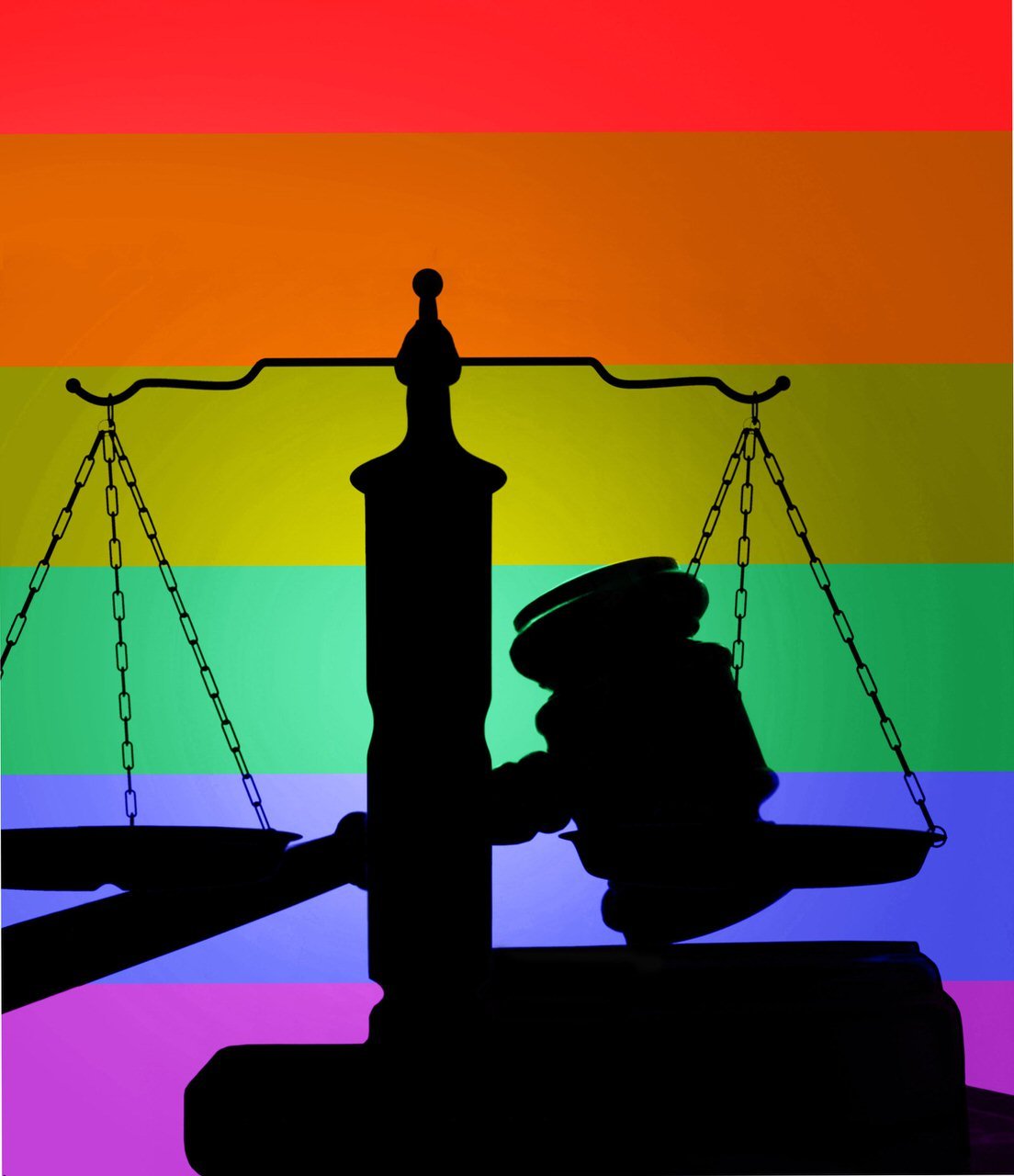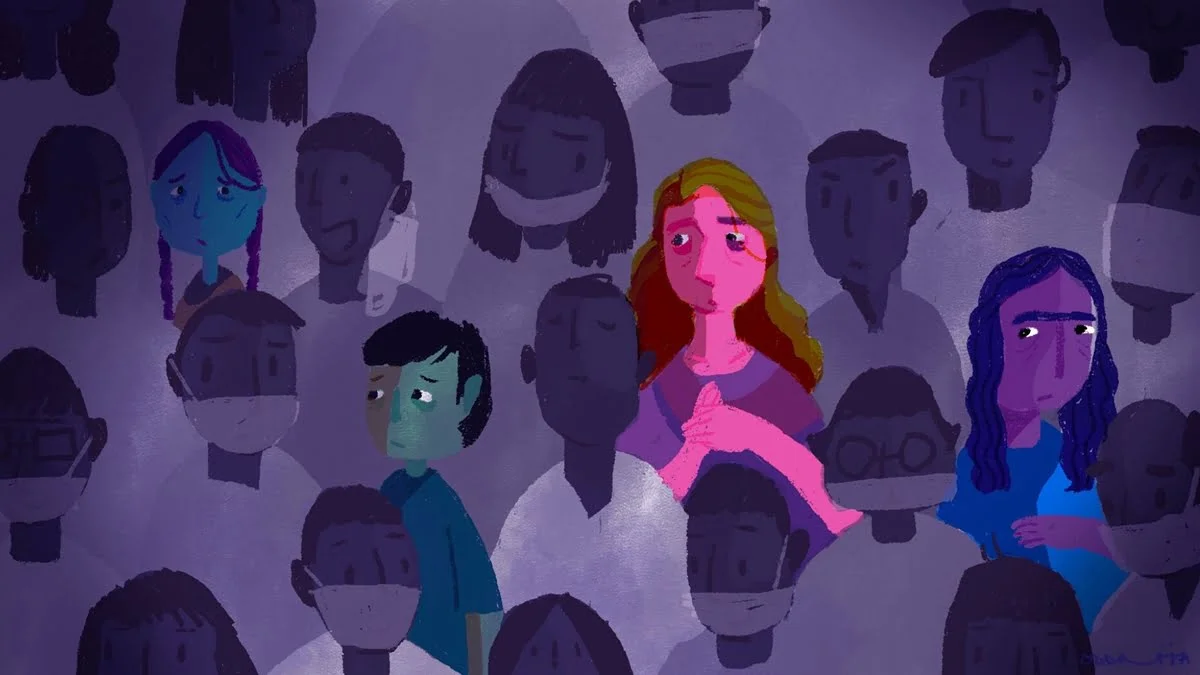Like many other Indians, we rejoiced last week when we read about the unanimous decision of a nine-judge Constitutional bench of the Supreme Court of India affirming that we as Indian citizens have a fundamental Right to Privacy. Moreover, at least four of those nine judges explicitly stated that the realm of privacy included one’s sexual orientation, and indicated that the abhorrent Kaushal vs. Naz Judgement of 2013 may be reconsidered, thus paving the way for Section 377 to be read down once again and consenting same-sex relationships to be decriminalised.
It was a moment of relief for us personally because, as mentioned in my last post and the bio below, I am transitioning from male to female, am married to a woman, and we have a child together. Needless to say, my gender transition, especially if affirmed by the state on my IDs and other official documents, can lead to questions about the validity of our marriage, possibly even our rights as parents, and in the worst case, criminalise our relationship because of the continuing existence of Section 377.
renewing a passport can become an issue if the authorities insist that I cannot have a woman as my spouse.
This much was told to us by a lawyer in our city (who we were told was queer friendly) when I approached him, seeking help with my legal transition. Although he did not explicitly refuse to help us, his comments left us wondering why we should be facing all this in the first place, and can Section 377 even be applied to two women living together? Thankfully, just a few days later, the Supreme Court judgement appeared, and a conversation after that with a different lawyer in a different city gave us some relief that we are not in any immediate danger of being criminalised or our marriage being de-recognised.
However, despite this reassurance, to the best of our knowledge, there is no legal precedent for a case like ours in India, which means that no one is really sure what may happen if I try to legally transition, and the status of our relationship becomes known to our courts or bureaucracy. We have been scared enough to even talk about this openly for a long time, but given this recent judgement on the Right to Privacy, we have gained a little more courage to open this conversation.
On one hand, there is currently no legal basis for de-recognising or annulling our marriage if both of us are consenting adults whose marriage has already been recognised once by the state, and if we want to continue living together and remain married to each other. Unlike many other countries in the past, current Indian law does not require someone to annul their marriage before undergoing a gender transition, nor have the medical professionals I have consulted so far asked me to do so.
Also Read: Responses From Trans & Intersex Communities On The Transgender Rights Bill 2016
We have been told that as long as neither of us nor anyone from our immediate families raises an objection, there is really no reason why the state should even know about us, just like many other same-sex couples are living together in this country despite no legal recognition.On the other hand, we already have documents recognising our marriage and parenthood, and it is possible that in future public interactions or transactions, we may run into problems if we are in a legal limbo without continuing explicit recognition by the state. For example, something as simple as renewing a passport can become an issue if the authorities insist that I cannot have a woman as my spouse if I am a woman myself, or that our child’s passport cannot have two women listed as parents.
It is not just a question of de-recognition after a gender transition, but even how marriage is defined in the first place. For example, the Hindu Marriage Act does not explicitly define marriage as between a man and a woman to begin with, but only between ‘any two Hindus’, though it can be argued that it implies heterosexual marriages when it uses the terms ‘groom’ and ‘bride’ in subsequent clauses. Nevertheless, if marriage is to be considered as a religious sacrament with vows meant to be fulfilled for life, and if according to our customs, it is a union of two souls, and the soul does not have a gender, then aren’t we already living out these religious or scriptural assertions, by wanting to remain married and raise a child together despite one partner’s gender transition?
On one hand, the state talks about preserving the sanctity of marriage, even if it is alongside highly problematic stances on women’s rights, then is it possible that at the same time it may derecognise and thus violate the sanctity of our marriage, even against our wishes as well as the wishes of our parents and families?
I hope that Section 377 will go away and all relationships between consenting adults will be duly recognised.
A different view of marriage is that it is a contract between two parties, but even in this case, there should be no basis for a third person to dissolve that contract as long as the two parties to it want to continue with it. Some countries which did not recognise same-sex marriages earlier would nevertheless recognise marriages like ours based on what was true at the time of the marriage. We do not know which of these legal precedents will India follow, but in any case, when the rest of the world is moving in a more progressive direction on these issues, is it possible that India might take a step back on it now?
Despite whatever we have just said here, we are well aware that marriage is a hetero-patriarchal institution, and the same scriptural and cultural pronouncements which we have selectively relied on to make our case can also be used to refute or condemn our very existence. However, we also believe that we have the right to interpret these existing social norms in ways that we believe in, as long as we are not harming anyone else, given that we have the same rights and freedoms as everyone else.
In any case, it is possible that this whole discussion may become redundant soon, given the fact that a Right to Privacy has been finally recognised by the highest court, and that sexual orientation, marriage and the sanctity of family life have been explicitly mentioned as being in the domain of one’s privacy. It gives us hope that soon enough, Section 377 will go away, and soon after that, all relationships between consenting adults will be duly recognised.
Also Read: State Insensitivity In Trans Inclusion
Featured Image Credit: NOW
About the author(s)
Vidya is a queer feminist woman with a history of gender transition. She and her spouse are like most other 'millennial' couples in urban India, balancing their relationship, careers, and a young child, with Vidya's ongoing gender transition.




